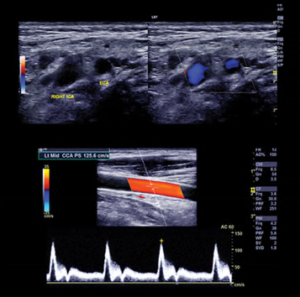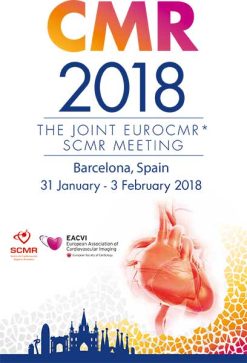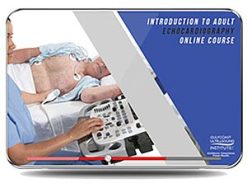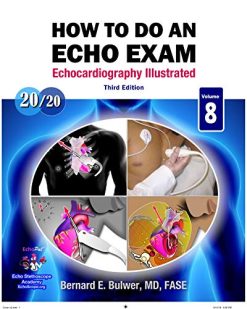Clinical Approach to Vascular Ultrasound and RPVI Prep Course 2023
$35,00
Samples for Courses Can be found here : Free Samples Here!
Designed to help you establish a strong foundation in both performance and interpretation of vascular ultrasound, this online CME program was developed in conjunction with the medical and technical directors of the vascular labs at Massachusetts General Hospital and Brigham and Women’s Hospital, as well as esteemed faculty from Stanford University Hospital, University of Colorado, and Johns Hopkins Hospital.
Format : 28 Videos + 2 PDFs
File Size : 8.68 GB
Clinical Approach to Vascular Ultrasound and RPVI Prep Course 2023
Designed to help you establish a strong foundation in both performance and interpretation of vascular ultrasound, this online CME program was developed in conjunction with the medical and technical directors of the vascular labs at Massachusetts General Hospital and Brigham and Women’s Hospital, as well as esteemed faculty from Stanford University Hospital, University of Colorado, and Johns Hopkins Hospital.
The Clinical Approach to Vascular Ultrasound and RPVI Prep Course delivers practical examples and case presentations that will enhance your ability to apply knowledge in patient situations. Online continuing medical education lecture topics include:
- Fundamental lower extremity physiologic and imaging studies used to diagnose and treat peripheral artery disease
- Normal and abnormal anatomy and imaging of the subclavian and vertebral arteries
- Techniques and indications used to predict impending bypass graft failure
- General overview for diagnosing and characterizing deep vein thrombosis, pelvic congestions syndrome, May-Thurner syndrome and venous thoracic outlet syndrome
- Dynamic TCD studies and their resulting surgical interventions and follow-ups
- and more…
Learning Objectives
Upon completion of this activity, participants will be able to:
- Demonstrate clinical interpretation of arterial and venous vascular noninvasive studies in the peripheral, cerebrovascular and abdominal systems
- Discuss the clinical application of velocity criteria for grading of stenosis in the vasculature including dialysis grafts, endovascular interventions in the aorta and peripheral system, and bypass grafts
- Summarize basic ultrasound physics and ultrasound technology as it applies to vascular diagnostics
- Review topics commonly found on the Registered Physician in Vascular Interpretation (RPVI) exam
- Develop and implement a vascular laboratory program at their home institution
Intended Audience
This course is targeted to primary care physicians and specialty physicians. This course may also be of interest to ultrasound technologists, general and specialty surgeons, practitioners preparing for the RPVI, and practitioners who wish to start a vascular lab.
TOPICS / SPEAKERS
- Basics of Physics in Vascular Imaging – Traci B. Fox, EdD, RT(R), RDMS, RVT
- Understanding the Ultrasound Machine – Scott Manchester, BS, MS, RVT
- Peripheral Arterial Studies in the Upper Extremity – Ido Weinberg, MD
- Peripheral Arterial Studies – Lower – Nikolaos Zacharias, MD, MPH
- Mesenteric Ischemia – Cory Finn, MHA, RDMS, RVT
- Panel Discussion – Moderator – Drena Root and Piotr Sobieszczyk; Faculty – Scott Manchester, Nikolaos Zacharias
- The Role of the Vascular Laboratory in the Diagnosis of Renal and Mesenteric Artery Disease – Michael R. Jaff, DO, FACP, FACC
- Carotid Duplex Ultrasonography – Mary Mingzhu Yan, RVT
- Subclavian and Vertebral Artery Ultrasound – Brian C. Scholz, RVT, RT(R)
- Cerebrovascular Intracranial – Transcranial Doppler – Sarah LaRose Michaud, RVT
- High Yield Pathologies Tested on the Registered Physician in Vascular Interpretation (RPVI) – Adhisekh Mohapatra, MD, MS
- Panel Discussion – Moderator – Drena Root, Piotr Sobieszczyk; Faculty – Anahita Dua, Mary Mingzhu Yan, Sarah Michaud, and Scott Manchester
- Bypass Graft Surveillance – John Carson, MD
- Aortic Endovascular Stent Graft Surveillance – Kendal M. Endicott, MD
- Dialysis Access Surveillance and Cases – Luis B. Suarez, MD, FACS, RPVI
- Tibio-Pedal Access – Lindsey T. Ferraro, MS, RDCS, RVT
- Panel Discussion – Moderator – Scott Manchester and Piotr Sobieszczyk; Faculty – Lindsey Ferraro, Kendal Endicott, Drena Root
- Venous Ultrasound 1 – Venous Insufficiency, Ultrasound in Office-Based Venous Procedures – Sherry D. Scovell, MD
- Venous Ultrasound 2 – Venous Thrombosis-Obstruction, Pelvic Congestion Syndrome – Ryan Brooks, BS, RVT
- Venous Case Presentations – Luis B. Suarez, MD, FACS, RPVI
- TCD Case Studies – Interventions and Follow-ups – Sarah LaRose Michaud, RVT
- Carotid Arterial Case Presentations – Drena Root, RVT
- Subclavian and Vertebral Arterial Case Presentations – Scott Manchester, BS, MS, RVT
- Peripheral Artery and Bypass Graft Case Presentations – John Carson, MD
- Aortic Endovascular Stent Graft Surveillance – Case Review – Kendal M. Endicott, MD
- How to Build a Vascular Ultrasound Lab Program – Medical Director Perspective – Michael R. Jaff, DO, FACP, FACC
- How to Build a Vascular Ultrasound Lab Program – Technical Director Perspective – Drena Root, RVT
- Panel Discussion – Moderator – Scott Manchester and Piotr Sobieszczyk; Faculty – Ryan Brooks and Sherry Scovell
Date of Original Release: July 15, 2023
Related products
CARDIOLOGY
CARDIOLOGY
HARVARD MEDICINE










